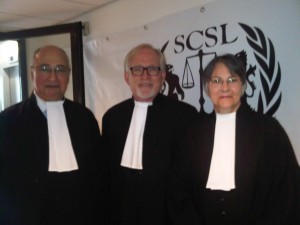By Ben Kopp
Impunity Watch Reporter, Europe
ATHENS, Greece – Greek authorities began arresting the Golden Dawn party’s leaders and supporters accused of creating a criminal organization, rather than a political party. Human rights groups have previously accused the group of links to attacks on immigrants.

Golden Dawn is Greece’s extreme-right political party with neo-Nazi roots. In May 2012, the party first entered parliament by capitalizing on the financial crisis, rising crime, and anti-immigrant sentiments. Often, Golden Dawn members and supporters were suspected of violence against immigrants and political opponents; particularly Communists.
The 18 September 2013 death of rapper Pavlos Fyssas sparked outrage and protests throughout Greece, which compelled a government-ordered investigation. After police arrested the suspect, he admitted to the stabbing and identified himself as a Golden Dawn supporter. While police examined cellphone records of the suspect and 300 others connected to the party, Golden Dawn denied any connection between themselves and the suspect.
In the 2012 general election, Golden Dawn won almost 7% of the vote. Despite the party’s denial of connection to Fyssas’s death, Golden Dawn has lost appeal in the past week.
Many Greeks have called for the government to ban Golden Dawn. However, Greece’s constitution does not allow political parties to be banned.
On 28 September 2013, Greek authorities arrested the Golden Dawn party’s leader, Nikos Michaloliakos, along with other lawmakers and supporters of Golden Dawn. The arrests are part of a government crackdown on the anti-immigrant party. This is the first time since the democratic restoration in 1974 that sitting members of Parliament have been arrested. The 17 lawmakers arrested were charged with forming a criminal organization.
At least one police officer was also arrested, in connection with accusations of law enforcement ignoring Golden Dawn violence and immigrant mistreatment.
Golden Dawn expressed outrage at the arrests in a text message to journalists: “We call upon everyone to support our moral and just struggle against the corrupt system! Everyone come to our offices!”
“It is an unprecedentedly dynamic response to a neo-Nazi organization,” government spokesman Simos Kedikoglou told The Associated Press. “The prime minister and the government were determined to deal with Golden Dawn solely through the justice system…We have succeeded in stripping them of their political cover and deal with them as what they really are, a criminal organization.”
Greece’s Supreme Court and anti-terrorist squad have begun handling the case. Unless convicted, Golden Dawn lawmakers will retain their parliamentary seats.
Recently, Golden Dawn suggested that its deputies might resign to provoke elections.
“Justice, stability, no elections,” said Prime Minister Antonis Samaras.
For further information, please see:
BBC News – Greece’s Golden Dawn Leader Michaloliakos Held in Crackdown – September 28, 2013
CNN International – Greece: Golden Dawn Party Leader and 4 Lawmakers Arrested, Police Say – September 28, 2013
Euronews – Greek Police Arrest Far-Right Golden Dawn Party Leader – September 28, 2013
Reuters – UPDATE 4-Greek Police Arrest Leader, Lawmakers of Far-Right Golden Dawn – September 28, 2013
Washington Post – Greek Authorities Arrest Leader, Others from Extreme Right Party in Escalating Crackdown – September 28, 2013


